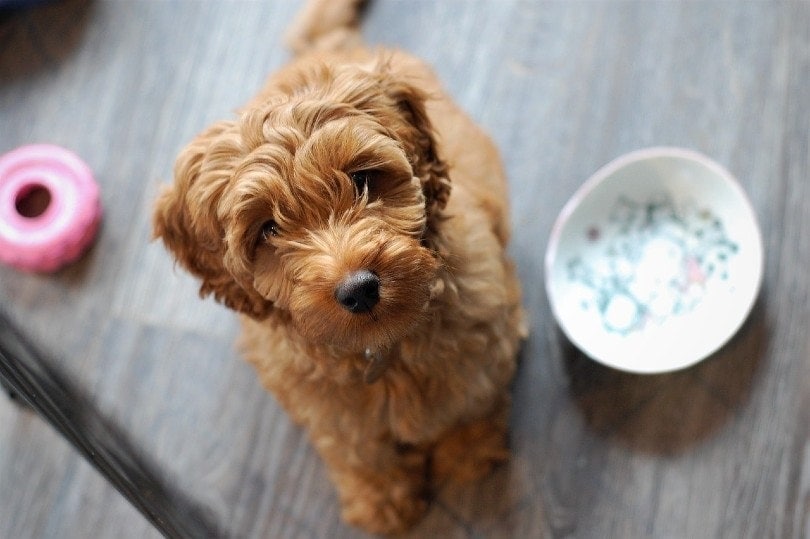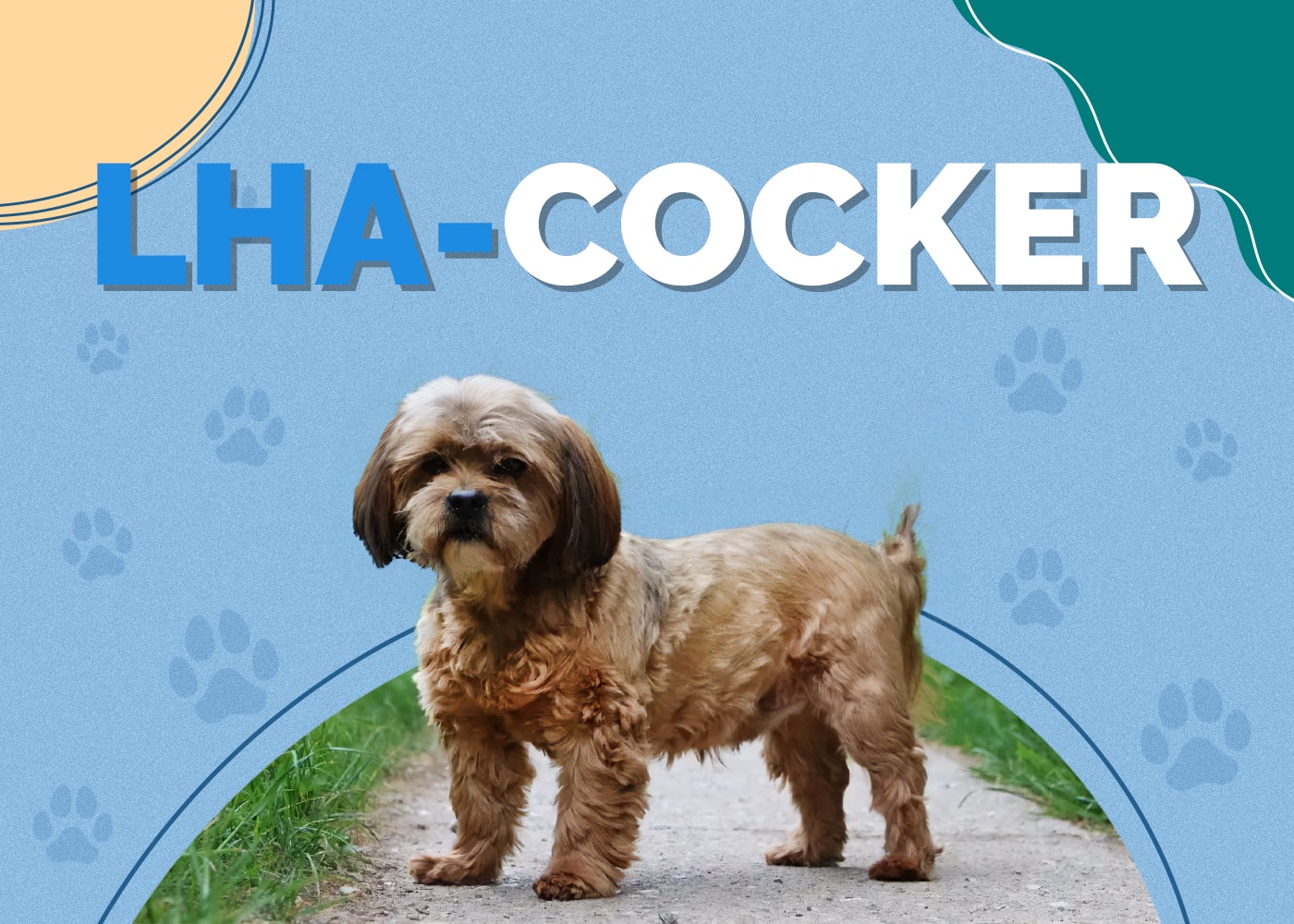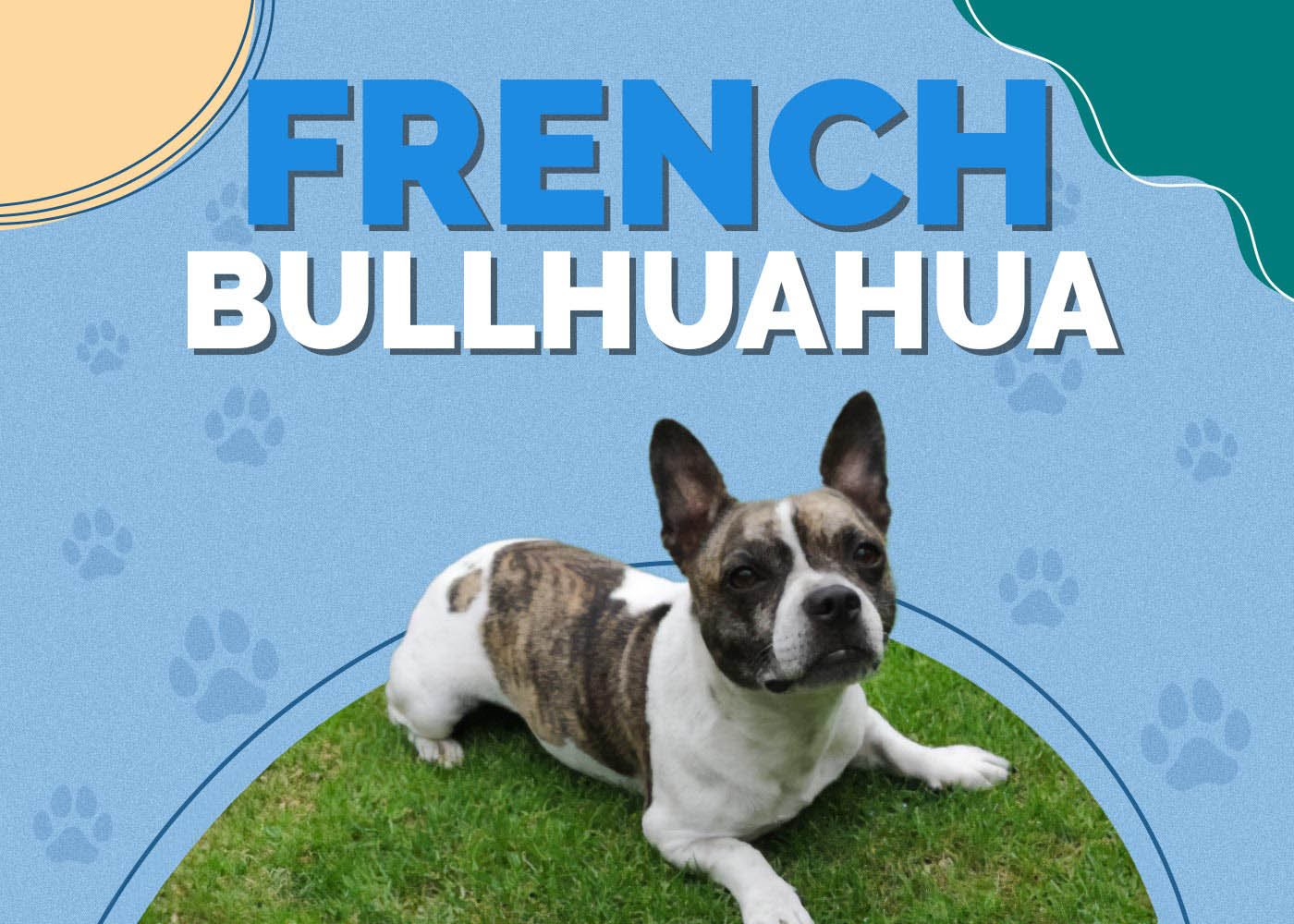Miniature Husky: Information, Pictures, Traits & Facts

Updated on
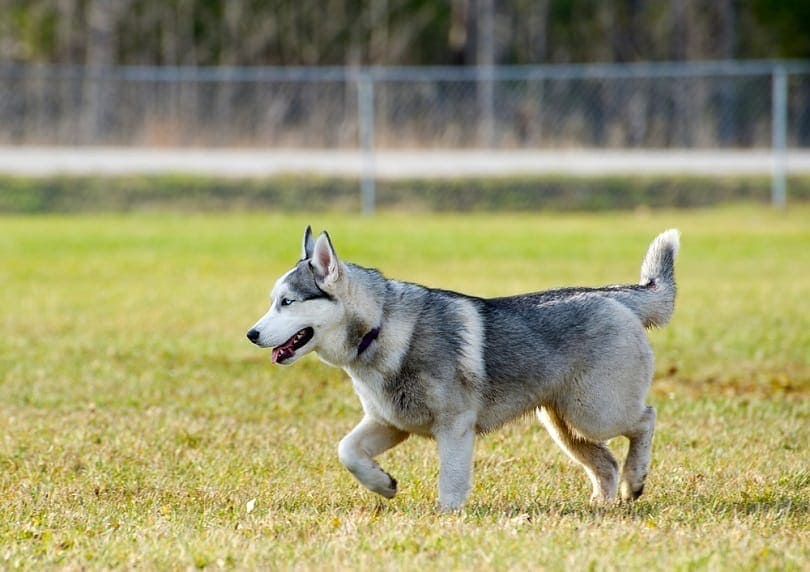
Height:
13-17 inches
Weight:
20-35 pounds
Lifespan:
12-15 years
Colors:
Black and white, red, brown, and sable
Suitable for:
Active families
Temperament:
Loyal, energetic, outgoing
Miniature Huskies aren’t an actual breed. There is only one size of Husky – the larger, standard size. However, some breeders market their puppies as miniature huskies to draw in more buyers. These dogs are not purebred huskies, however. Instead, they are created by mixing a husky with a smaller dog.
Many smaller dogs can be used to create this smaller breed to vary a little bit. Because this is a mixed breed, it is difficult to predict precisely how this breed will look or act. As a rule, they are typically smaller than a Husky. However, they can vary in most other ways.
This article will review some of the common threads these smaller dogs often have in common.
 Miniature Husky Puppy
Miniature Husky Puppy

Miniature Huskies aren’t a recognized breed. They tend to vary quite a bit for this reason. There is no exact breed standard, so there isn’t a standard that breeders attempt to achieve when breeding their dogs. Because these are mostly companion animals, so their traits can vary a lot. Some require more energy than others.
Generally, because they are all part Husky, they aren’t trainable. These dogs tend to be stubborn. They are intelligent to learn what you want to tell them quickly, but they may not always listen to your commands.
They do tend to be relatively healthy and live for a long time. They are people-oriented, so they love cuddling with everyone. And they are the right size to cuddle, which isn’t necessarily valid with full-sized huskies.
3 Little-Known Facts About the Miniature Husky
1. “Miniature Husky” can refer to many things.
There are many things that the term “miniature Husky” can refer to. In many cases, it refers to a smaller mixed breed that has a Husky parent. Sometimes these dogs look very similar to a Husky. Other times, they may look like a different parent. There are some dog breeds like the Alaskan Klee Kai that may occasionally be referred to as a “miniature husky.”
2. Bree Normandin bred the first “miniature Husky.”
Bree Normandin was one of the first people to develop a Miniature Husky. He bred very small huskies together to create a slightly smaller breed. However, these dogs were not much smaller than a full-sized Husky.
3. These dogs are boisterous.
Miniature huskies tend to “talk.” This sounds like a mix between a growling and howling sound and often throws many people off. It can sound like they are growling, but they are just “talking.”
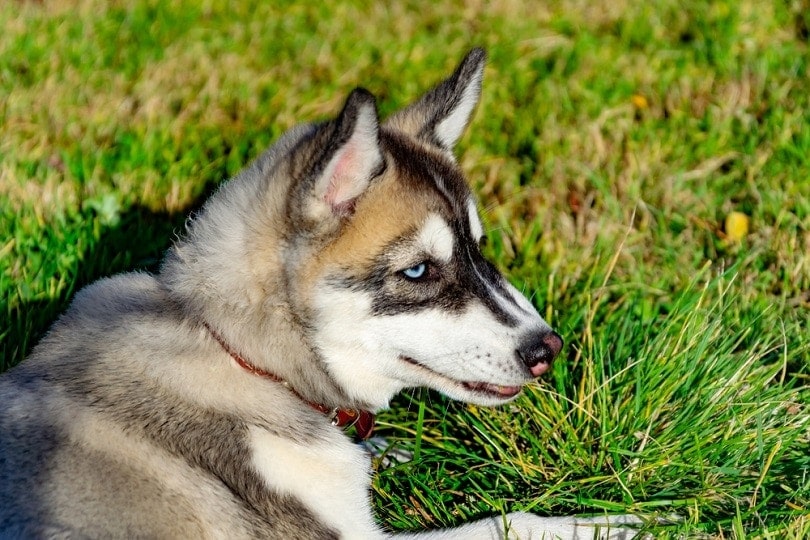
Temperament & Intelligence of the Miniature Husky 🧠
These dogs were bred to be companion animals. For this reason, they are usually extraordinarily social and love their people. They enjoy cuddling and typically do not mind plenty of attention. They can be a bit energetic, so they tend to be somewhat hyper. They tend to be incredibly excited when new people come around, so they need some training to remain calm in these situations.
These dogs are very pack-oriented. They love their people and get along just fine with other dogs. They do have some chasing instincts and will attempt to chase just about everything – from deer to butterflies. Many are even known to chase flurrying snow. They do well in a fenced-in backyard for this reason. They love to run.
They are intelligent. They will figure out how to get into things and are described as an escape artist. However, they are also quite stubborn, which can make training difficult. They aren’t always going to listen to you, even if they know what command you’re saying.
These dogs are pretty good with children. They were bred around children and free-roaming, so they are pretty understanding with younger children. However, they can get excitable and occasionally knock children down. Because they are smaller, this isn’t always a problem.
These dogs are very prone to separation anxiety, as they are pack-oriented. They do best for families that will stay home most of the time. Otherwise, you may have to adopt more than one to keep them with a constant companion. (However, do not purchase two littermates, as this can result in littermate syndrome.)
Are Miniature Huskies Good for Families? 🏡
Yes. These dogs are very good with families. They are considerably patient with children and love affection. They bond equally with everyone and love people in general. Their friendliness makes them perfect for families.
However, their energetic nature makes them best for active families.
Do Miniature Huskies Get Along with Other Pets? 🐶 😽
Yes. They do just fine around other dogs. They are pack-oriented, so they are usually accepting of just about any dog around. They require some early socialization, but most of them are just fine around dogs of all shapes and sizes.
They do have chase instincts, so they may not be okay with cats and other animals that may run. They need to be trained and socialized with these other animals to accept them.
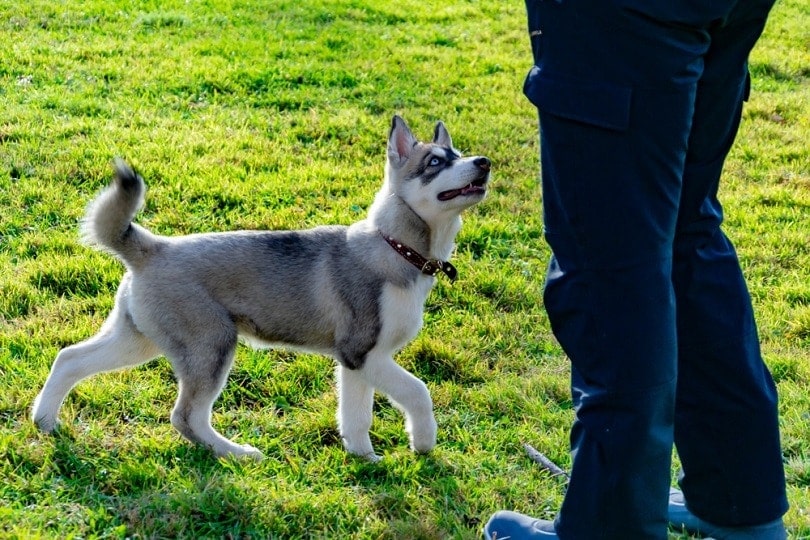
 Things to Know When Owning a Miniature Husky
Things to Know When Owning a Miniature Husky
Food & Diet Requirements 🦴
These smaller dogs can be very energetic. They are not your usual lapdog. For this reason, they need a diet that will help maintain their lean muscles. A diet high in protein and fat is a must.
Besides this, they are usually okay with just about any high-quality diet out there. They are a smaller breed, so they do not need the large-breed puppy foods their full-sized cousins do.
Exercise 🐕
Despite their smaller size, these dogs are rather energetic. They would be happy to exercise every day, all day if they could. A large, enclosed yard is the best option for these pups so that they can run around for as long as they need to.
At a minimum, these dogs need about two walks a day. These need to be longer than just a walk around a park. You should plan on these walks taking at least half an hour.
With that said, these dogs should never be forced to exercise, especially as a puppy. If they seem to tire before they complete their walk, you should let them stop and take a break. This can damage their joints.

Training 🦮
While these dogs are intelligent, they are not reasonably easy to train. Or, another way to explain it, they take very quickly to learning the commands, but they likely won’t listen every time you tell them to do something. They are incredibly stubborn and usually have a mind of their own.
Instead of training, their intelligence is usually aimed at figuring out how to get to snacks hidden in cabinets and escaping 8-foot tall fences.
Grooming ✂️
Despite their fluffy coats, miniature Huskies don’t need to be groomed often. They are a “natural” breed. For the most part, their coat takes good care of itself. They require only a few baths a year (usually after they run through mud or get in the trash). You should brush them weekly to handle the loose hair and spread their natural oils through their coat.
Miniature Huskies have a double coat. In other words, they have a soft undercoat and a thicker, rough outer coat. This coat will shed about twice a year. They will need to be brushed daily during these events. Their lower coat will need “raked out.”
You’ll also need to brush their teeth and keep their claws trimmed.
Miniature Husky Health and Conditions ❤️
These canines are prone to a few health problems. They are a healthier breed of dog overall, but there are still a few problems they can be prone to.
- Juvenile Cataracts
- Corneal Dystrophy
- Canine Glaucoma
- Progressive Retinal Atrophy
- Congenital Laryngeal Paralysis
- Bronchitis
 Male vs Female
Male vs Female
There are no significant differences between males and females. Males may be a bit larger, but this isn’t a visible difference. Otherwise, they are the same. Females may be a bit more expensive because they are generally more sought after.
For this reason, you may wish to save a bit of money and choose a male – as there is no behavioral difference between genders.
 Final Thoughts: Miniature Husky
Final Thoughts: Miniature Husky
While miniature Huskies are not a specific breed, they are adorable. Many breeders market their dogs as “miniature Huskies,” but usually, these are mixed breeds or separate breeds altogether. A few small Husky lines are around, but they are rare, expensive, and generally not that small.
These dogs tend to act a lot like Huskies, but this can vary. Some look exactly like tiny Huskies, but most do not.
- See Also: 25 Husky-Mischlingsrassen (mit Bildern)
Featured image credit: KellyNelson, Shutterstock
 Miniature Husky Puppy
Miniature Husky Puppy
 Things to Know When Owning a Miniature Husky
Things to Know When Owning a Miniature Husky Final Thoughts: Miniature Husky
Final Thoughts: Miniature Husky